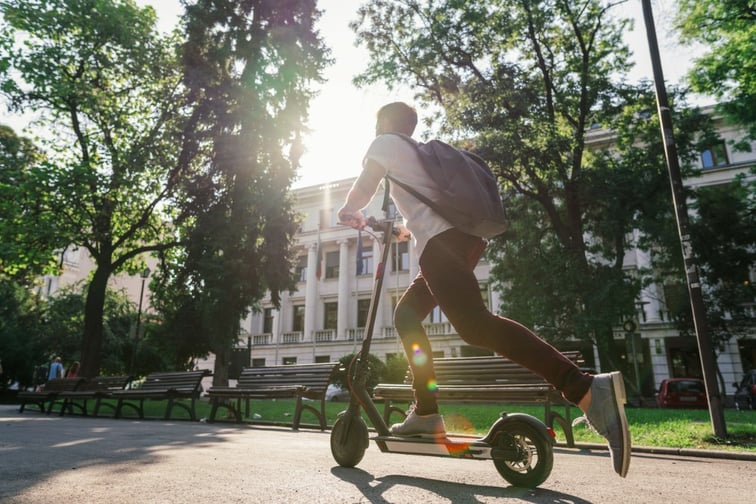

RACQ has urged electric scooter (e-scooter) riders to take their time when going to work as new data has revealed that more crashes occur on the morning commute than on the way home. It also found that workers’ compensation claims from e-scooter incidents have tripled over the past three years.
The data is part of an e-scooter injury research project funded by RACQ and the RBWH Foundation through the Jamieson Trauma Institute (JTI).
It showed that 36% of e-scooter crashes occur on the way to work, while 29% occur on the way home. Moreover, Tuesdays are the most common day for an e-scooter crash.
“More and more people are using e-scooters as part of their daily commute, and while they're a great mode of transport, people need to remember how dangerous they can be,” said principal technical researcher Andrew Kirk. “We all know how easy it is to run out of time in the morning, and we're often scrambling to get into the office or wherever we may need to be.”
“Make sure you're allowing extra time for your commute or accept that it's better to be a couple of minutes late than seriously injure yourself and end up in the hospital.”
The data showed workers' compensation claims for e-scooter crashes had tripled over the past three years.
“There were 421 e-scooter-related workers' compensation claims made between December 2018 and October 2022,” said JTI researcher professor Kirsten Vallmuur. “An average of almost 16 claims were made every month in 2022, up from less than five per month in 2019.”
The “majority” of claims were made by males, while the most common age group of claimants was 25-to-34 years olds (35%), according to the data. This was followed by 35 to 44-year-olds (26%).
The RBWH Foundation CEO Simone Garske said trauma research funding is crucial to fully inform the community and policymakers about emerging risks, including those posed by e-scooters.
“Thanks to RBWH Foundation donors and our partnership with RACQ, much-needed funding has been provided to researchers so they can review data and compile statistics which provide life-saving insights,” Garske said.
